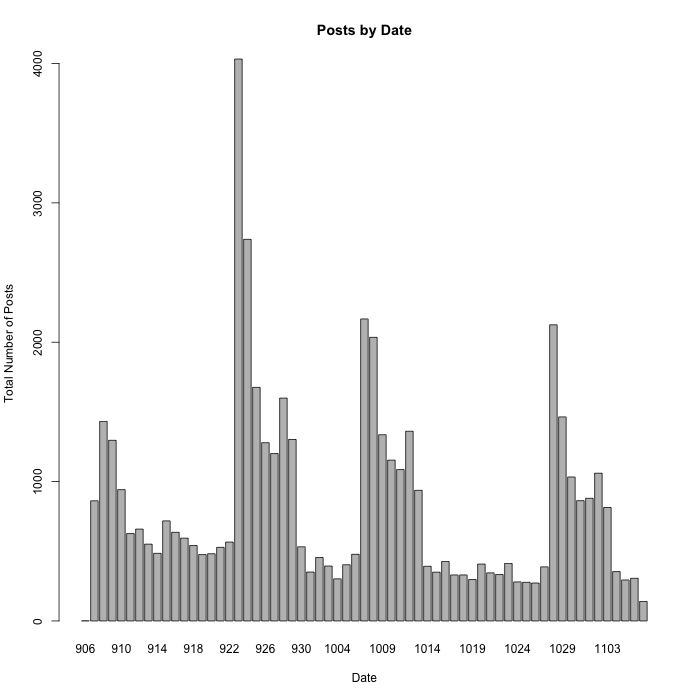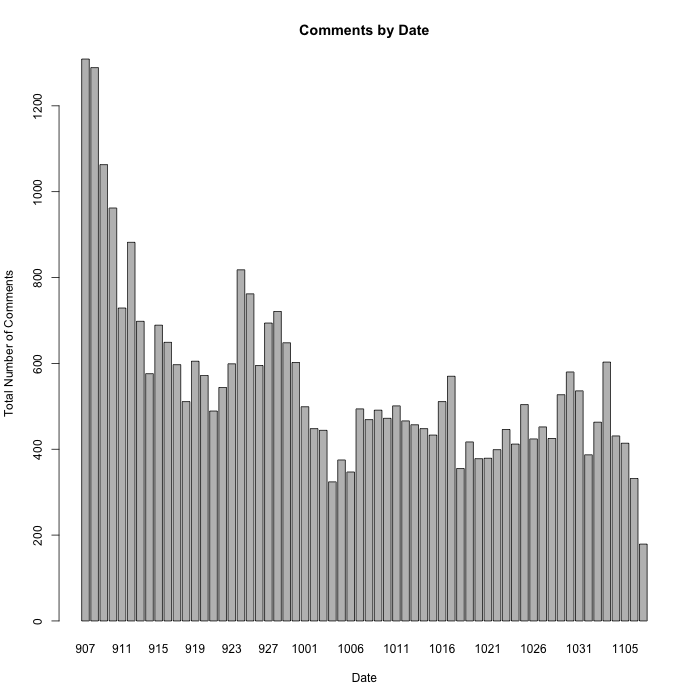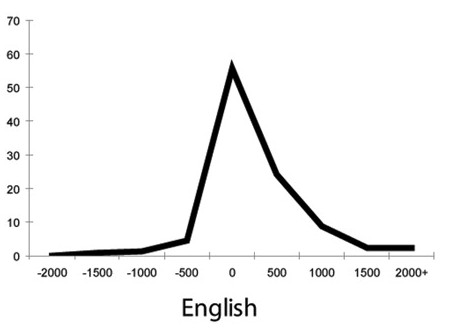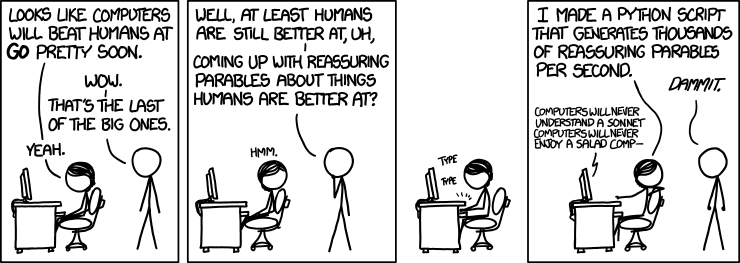Email from Dan Garrette:
I am a Computer Science PhD student at UT-Austin working with Jason Baldridge, but I've recently been collaborating with my colleague Hannah Alpert-Abrams in the Comparative Literature department here at UT. We've been talking about the intersection of NLP and literary study and we are interested in looking at ways in which researchers can collaborate to do work that is valid scholarship in both fields.
There has been a flurry of writing recently about the relationship between the sciences and the humanities (see: Ted Underwood, Steven Pinker, Ross Douthat's response to Steven Pinker, etc), and a particularly interesting paper at ACL (David Bamman, Brendan O’Connor, & Noah A. Smith, "Learning Latent Personas of Film Characters") that attempts to use modern NLP techniques to answer questions in literary theory. Unfortunately, much of this discussion has failed to actually understand or recognize the scholarship that is really happening in the humanities, and, instead, seems to assume that people in the sciences are able to simply walk in and provide answers for another field.
We would like to see truly interdisciplinary work that combines contemporary ideas from both fields, and we see the ACL paper as the perfect point of entry for a public conversation about this kind of work. Because Language Log attracts readers from many different disciplines, and because computational linguistics has played an important part of the developing field of 'digital humanities,' we thought it might be a good forum for this conversation.
We have written a short response to the ACL paper which we think might make an interesting Language Log post, and Jason suggested I send it to you to see if you were interested. We'd be very interested to hear your thoughts and the thoughts of the greater Language Log readership. Perhaps it could even spark a conversation.
Read the rest of this entry »
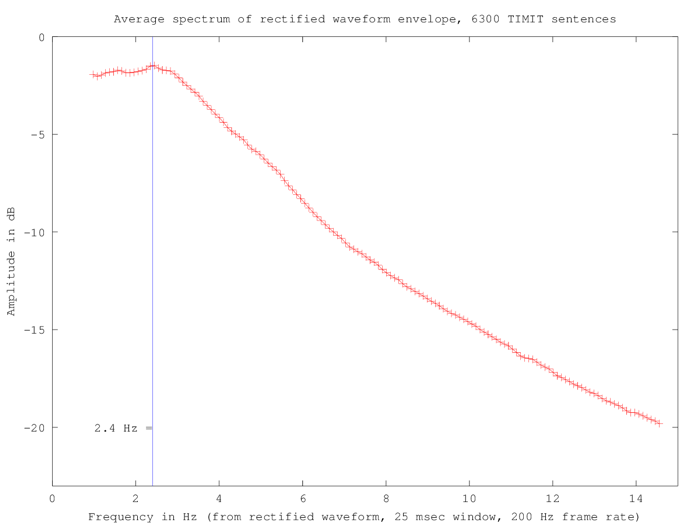 In "Speech rhythms and brain rhythms", 12/2/2013, I showed the results of a simple experiment looking for evidence of speech rhythms in the frequency domain, which found a peak at about 2.4 Hz in the average spectrum of the waveform envelope of 6300 read sentences. I don't have anything new to say about what what this means, but I wanted to note a 65-year-old example of a somewhat similar experiment.
In "Speech rhythms and brain rhythms", 12/2/2013, I showed the results of a simple experiment looking for evidence of speech rhythms in the frequency domain, which found a peak at about 2.4 Hz in the average spectrum of the waveform envelope of 6300 read sentences. I don't have anything new to say about what what this means, but I wanted to note a 65-year-old example of a somewhat similar experiment.